
Addis Ababa: The Vibrant Heart of Ethiopia
Addis Ababa, the capital city of Ethiopia, is a bustling metropolis that serves as the cultural and economic hub of the nation. Nestled in the foothills of the Entoto Mountains, this city is a fascinating blend of old and new. With its rich history, diverse culture, and dynamic urban life, Addis Ababa offers an enriching experience for every visitor. Begin your journey at the National Museum of Ethiopia, home to the famous fossilized remains of 'Lucy,' one of our earliest ancestors. The museum provides a deep dive into Ethiopia's ancient history. For a taste of the city's vibrant culture, visit the bustling Merkato, Africa's largest open-air market. Here, you can find everything from traditional spices to handmade crafts. No visit to Addis Ababa is complete without experiencing its culinary delights. Ethiopian cuisine is known for its rich flavors and communal style of eating. Try injera, a sourdough flatbread, paired with a variety of spicy stews. The city's coffee culture is also a must-experience, as Ethiopia is the birthplace of coffee. Enjoy a traditional coffee ceremony, a unique and aromatic ritual that will leave a lasting impression. The city's nightlife offers another dimension of excitement. From chic bars to traditional music venues, Addis Ababa has something for everyone. Be sure to visit the Jazzamba Lounge to experience the city's thriving jazz scene. As you explore, you'll find that Addis Ababa is a city of contrasts, where ancient traditions meet modern innovations, creating a unique and unforgettable atmosphere.
Local tips in Addis Ababa
- Carry local currency as many places do not accept credit cards.
- Dress modestly, especially when visiting religious sites.
- Beware of pickpockets in crowded areas like the Merkato.
- Use bottled water for drinking and brushing your teeth.
- Hire a local guide to explore historical sites for a more enriching experience.
Neighbourhoods in Addis Ababa
Addis Ababa: The Vibrant Heart of Ethiopia
Addis Ababa, the capital city of Ethiopia, is a bustling metropolis that serves as the cultural and economic hub of the nation. Nestled in the foothills of the Entoto Mountains, this city is a fascinating blend of old and new. With its rich history, diverse culture, and dynamic urban life, Addis Ababa offers an enriching experience for every visitor. Begin your journey at the National Museum of Ethiopia, home to the famous fossilized remains of 'Lucy,' one of our earliest ancestors. The museum provides a deep dive into Ethiopia's ancient history. For a taste of the city's vibrant culture, visit the bustling Merkato, Africa's largest open-air market. Here, you can find everything from traditional spices to handmade crafts. No visit to Addis Ababa is complete without experiencing its culinary delights. Ethiopian cuisine is known for its rich flavors and communal style of eating. Try injera, a sourdough flatbread, paired with a variety of spicy stews. The city's coffee culture is also a must-experience, as Ethiopia is the birthplace of coffee. Enjoy a traditional coffee ceremony, a unique and aromatic ritual that will leave a lasting impression. The city's nightlife offers another dimension of excitement. From chic bars to traditional music venues, Addis Ababa has something for everyone. Be sure to visit the Jazzamba Lounge to experience the city's thriving jazz scene. As you explore, you'll find that Addis Ababa is a city of contrasts, where ancient traditions meet modern innovations, creating a unique and unforgettable atmosphere.
When is the best time to go to Addis Ababa?
Iconic landmarks you can’t miss
National Museum of Ethiopia
Explore Ethiopia's rich heritage at the National Museum, home to ancient artifacts, Lucy's fossil, and vibrant cultural exhibits.
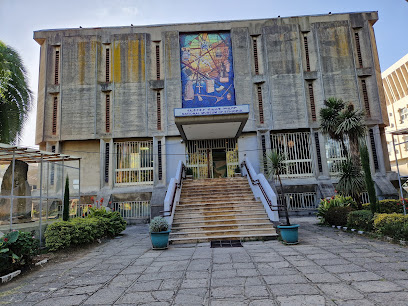
Unity Park
Explore Unity Park in Addis Ababa, a vibrant city park blending history, art, and nature for an unforgettable cultural experience.
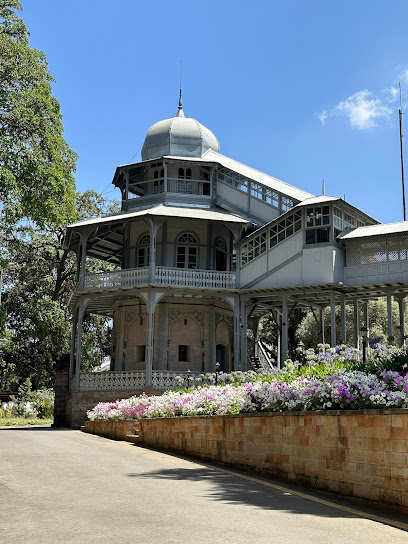
Meskel Square
Discover the vibrant heart of Addis Ababa at Meskel Square, a historical landmark where culture, community, and celebration converge.
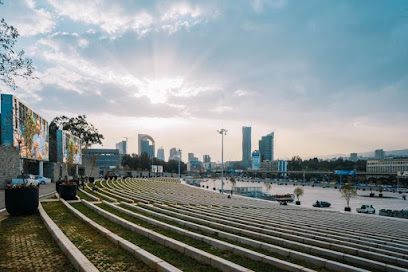
Friendship Park
Experience the tranquility and cultural vibrance of Friendship Park, a must-visit urban oasis in Addis Ababa, Ethiopia.
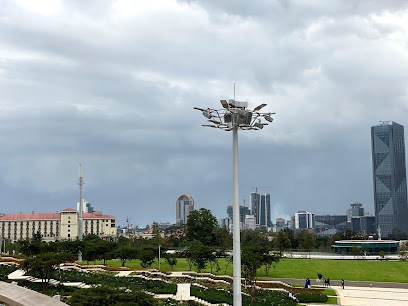
Merkato
Explore Merkato, Addis Ababa's vibrant market, where the rich culture of Ethiopia comes alive through local crafts, delicious cuisine, and a lively atmosphere.
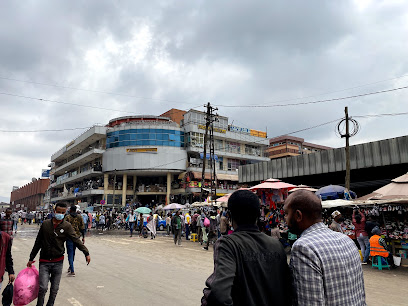
Holy Trinity Cathedral
Experience the spiritual and architectural splendor of Holy Trinity Cathedral, a must-visit landmark in Addis Ababa, Ethiopia.
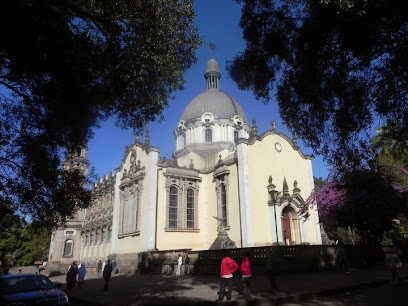
Addis Ababa Stadium
Discover the heart of Ethiopian sports and culture at Addis Ababa Stadium, a vibrant venue hosting thrilling events and rich traditions.
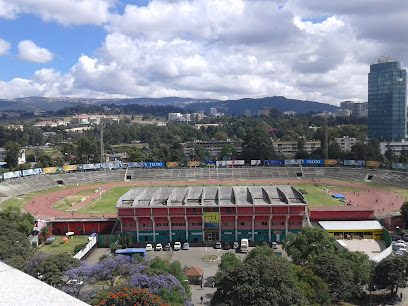
Grand Anwar Mosque
Explore the enchanting Grand Anwar Mosque in Addis Ababa, a masterpiece of Islamic architecture and a serene oasis of spirituality.
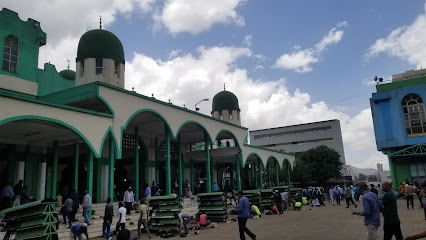
Ethnological Museum
Explore Ethiopia's diverse cultural heritage at the Ethnological Museum in Addis Ababa, a captivating journey through history and tradition.
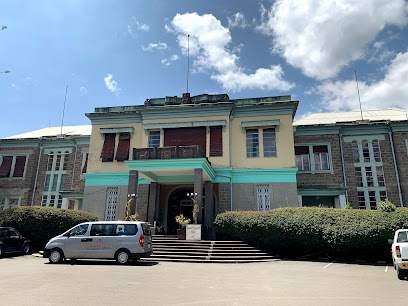
Sheger park
Experience tranquility and natural beauty at Sheger Park, Addis Ababa's cherished urban oasis for relaxation and recreation.
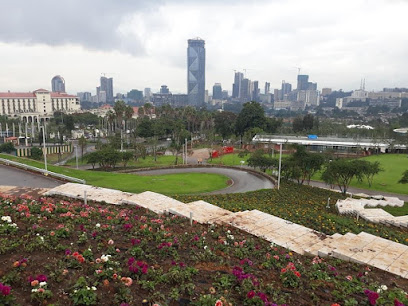
Red Terror Martyrs' Memorial Museum የቀይ ሽብር መታሰቢያ ሙዚየም
Explore the Red Terror Martyrs' Memorial Museum in Addis Ababa: A profound journey through Ethiopia's history of resilience and hope.
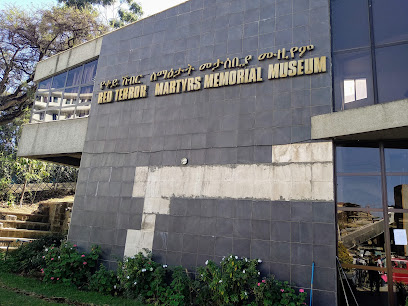
Emperor Tewodros II Square
Experience the rich history and vibrant culture at Emperor Tewodros II Square, a must-visit landmark in Addis Ababa, Ethiopia.
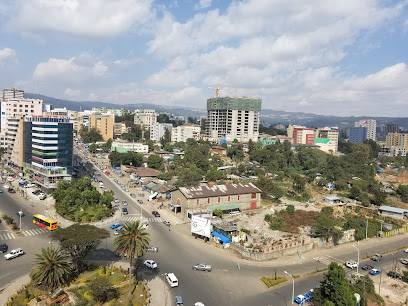
Addis Ababa Museum | Meskel Square | አዲስ አበባ ሙዚየም | መስቀል አደባባይ
Explore the Addis Ababa Museum: A vibrant showcase of Ethiopia's rich history and culture, located in the heart of the city near Meskel Square.
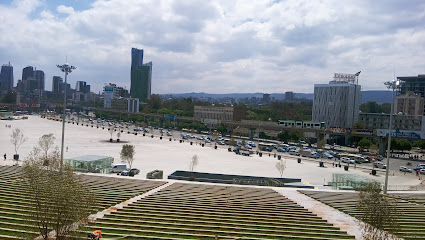
የአፍሪካ ጃዝ መንደር | African Jazz Village
Discover the heartbeat of Addis Ababa at African Jazz Village, where live music meets authentic Ethiopian cuisine for an unforgettable cultural experience.
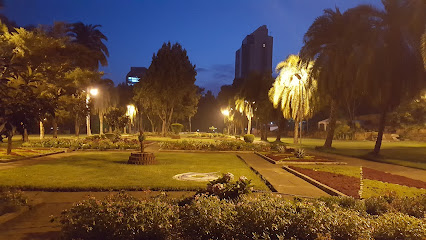
Piassa, Degol Square
Explore the vibrant history and culture of Addis Ababa at Piassa, Degol Square, a bustling landmark filled with shops, eateries, and rich traditions.
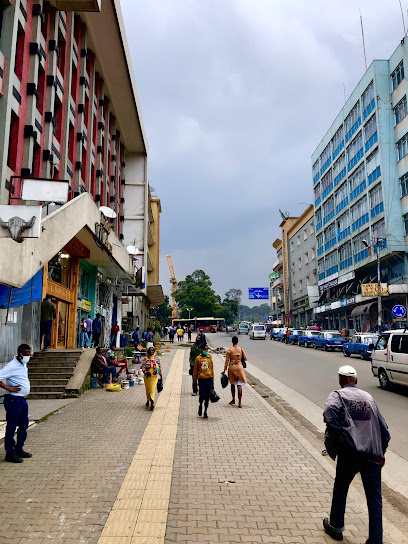
Unmissable attractions to see
National Museum of Ethiopia
Explore the National Museum of Ethiopia in Addis Ababa, home to Lucy and a rich collection of cultural artifacts showcasing Ethiopia's heritage.
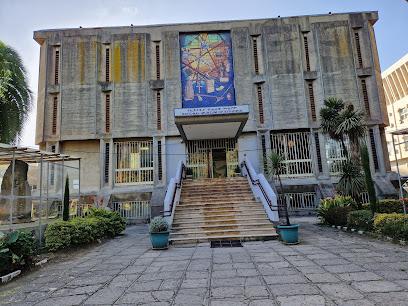
Unity Park
Explore the cultural richness and natural beauty of Unity Park in Addis Ababa - a perfect blend of history, art, and tranquility.
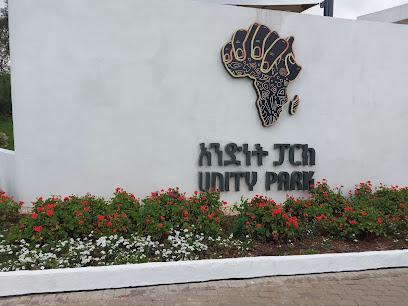
Friendship Park
Experience the tranquility and beauty of Friendship Park, a lush city park in Addis Ababa, perfect for relaxation and cultural exploration.
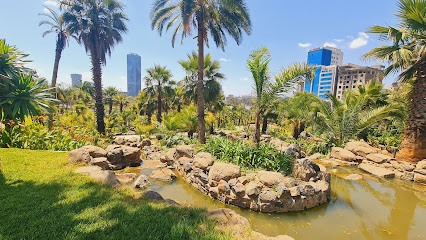
Kuriftu Water Park
Explore the exciting Kuriftu Water Park in Bishoftu – a premier destination for fun and relaxation in Ethiopia's beautiful landscapes.
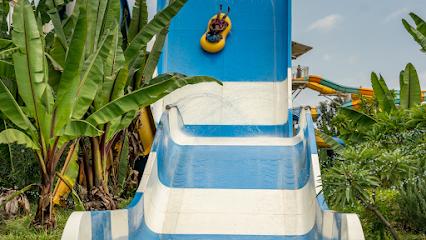
Zoma Museum Mekanisa
Experience the vibrant fusion of art and cuisine at Zoma Museum in Mekanisa, Addis Ababa, a cultural haven for every traveler.
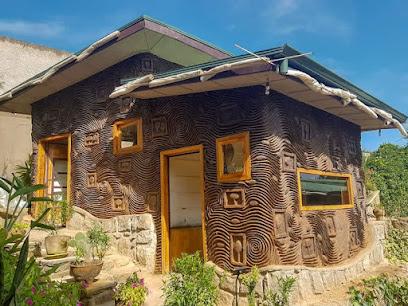
Medhanealem Cathedral
Explore the spiritual and architectural wonder of Medhanealem Cathedral in Addis Ababa, a must-visit for culture seekers and history buffs alike.
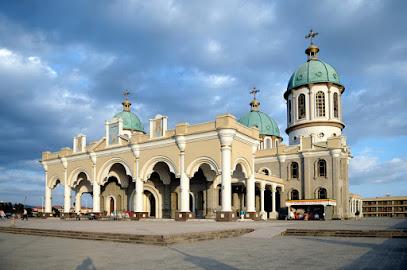
Holy Trinity Cathedral
Discover the Holy Trinity Cathedral in Addis Ababa, a stunning architectural gem and a historic site of Ethiopia's Orthodox Christian heritage.
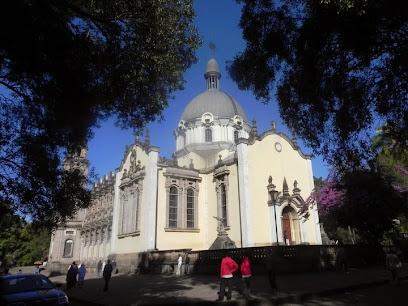
Entoto Park - Main Entrance
Experience the serene beauty and rich history of Entoto Park in Addis Ababa, a perfect retreat for nature lovers and culture enthusiasts alike.
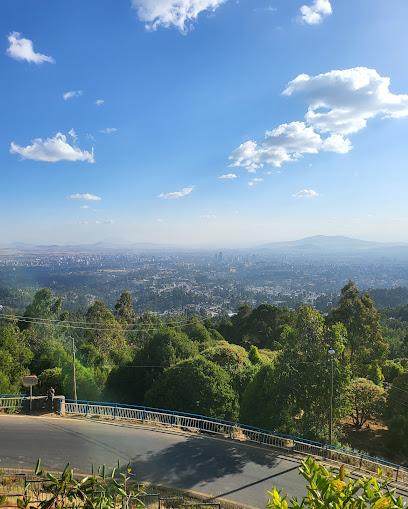
Entoto St. Maryam Church
Discover the spiritual heart of Ethiopia at Entoto St. Maryam Church, a historic Orthodox sanctuary offering breathtaking views and rich cultural heritage.
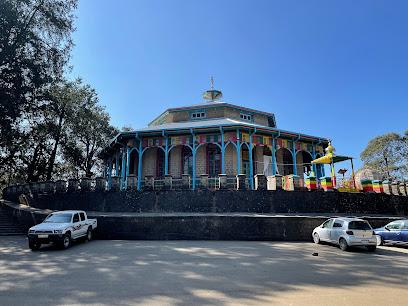
Ethnological Museum
Delve into Ethiopia's vibrant culture at the Ethnological Museum, a heritage gem in Addis Ababa showcasing diverse traditions and history.
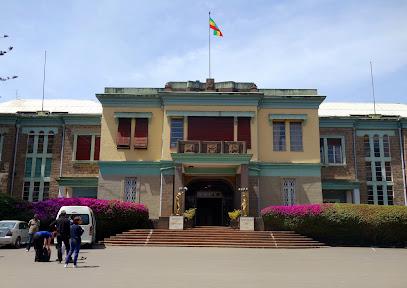
Mount Entoto
Explore Mount Entoto: A breathtaking peak near Addis Ababa, offering stunning views, rich biodiversity, and a glimpse into Ethiopia's cultural heritage.
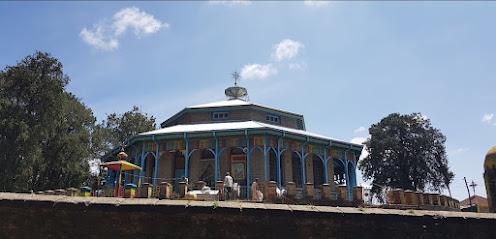
Bora Amusement Park | Bole
Experience the thrill of Bora Amusement Park in Bole, Addis Ababa – a family-friendly destination filled with rides, games, and unforgettable memories.
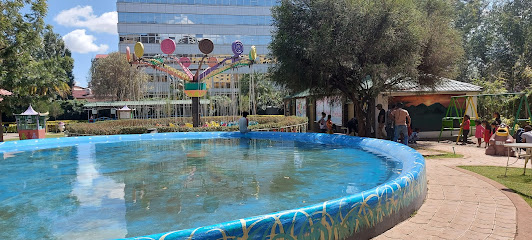
Gulele Botanical Garden
Explore the lush landscapes of Gulele Botanical Garden in Addis Ababa, a tranquil oasis showcasing Ethiopia's rich biodiversity and stunning views.
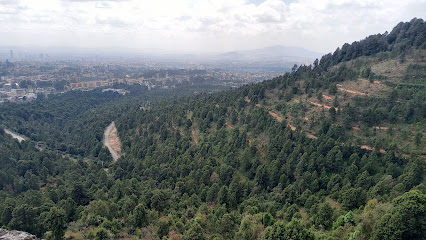
Ethiopian Science Museum
Explore Ethiopia's rich scientific heritage at the Ethiopian Science Museum, where innovation and culture collide in a unique educational experience.
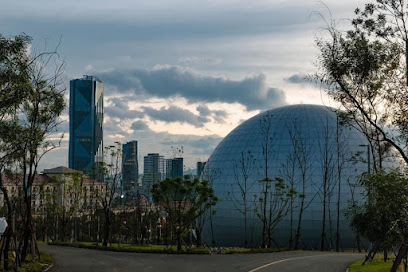
Red Terror Martyrs' Memorial Museum የቀይ ሽብር መታሰቢያ ሙዚየም
Delve into Ethiopia's history at the Red Terror Martyrs' Memorial Museum, a moving tribute to the victims of the Red Terror period.
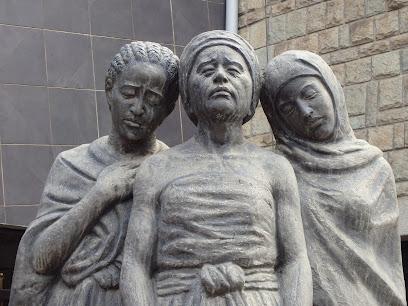
Essential places to dine
Sishu | Kera
Experience authentic American cuisine at Sishu in Addis Ababa - where comfort food meets Ethiopian warmth.
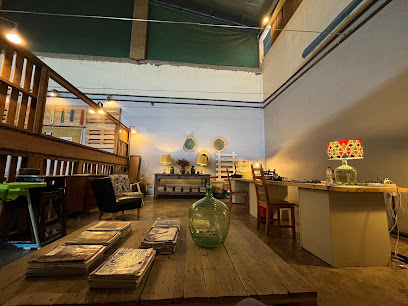
Yod Abyssinia Traditional Restaurant
Experience the vibrant flavors and rich culture of Ethiopia at Yod Abyssinia Traditional Restaurant in Addis Ababa.
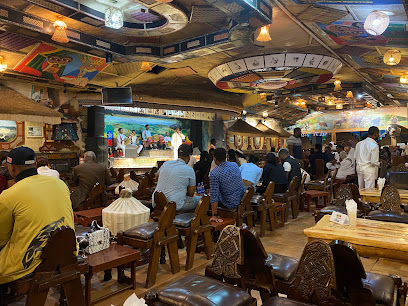
Cravings Restaurant & Bar
Discover authentic Ethiopian flavors at Cravings Restaurant & Bar in Addis Ababa - where every meal is a celebration.
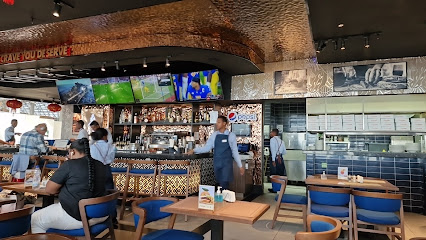
Kategna Restaurant
Experience authentic Ethiopian flavors at Kategna Restaurant in Addis Ababa—where every meal is a celebration of culture and tradition.
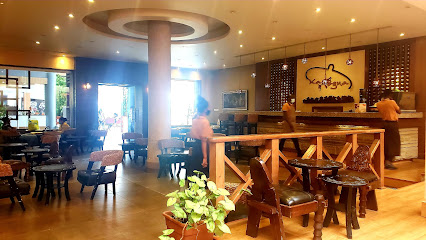
2000 Habesha cultural restaurant | Bole Atlas | 2000 ሀበሻ የባህል ሬስቶራንት | ቦሌ አትላስ
Discover authentic Ethiopian flavors at 2000 Habesha Restaurant in Bole Atlas - where culture meets cuisine.
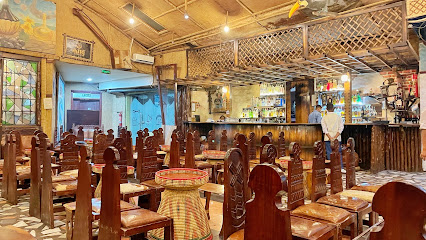
Sanaa restaurant
Experience authentic Yemeni cuisine at Sanaa Restaurant in Addis Ababa – where flavors come alive amidst warm hospitality.
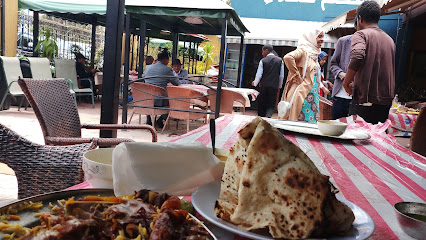
Dashen Traditional Restaurant
Experience authentic Ethiopian cuisine at Dashen Traditional Restaurant in Addis Ababa - where every meal tells a story.
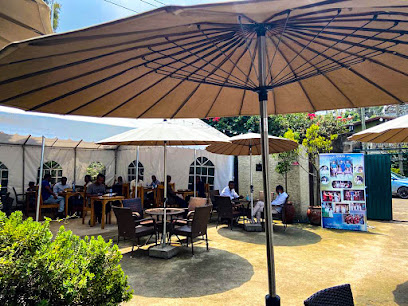
Moyos Cafe
Discover the flavors of Ethiopia at Moyos Cafe in Addis Ababa - where tradition meets modern dining.
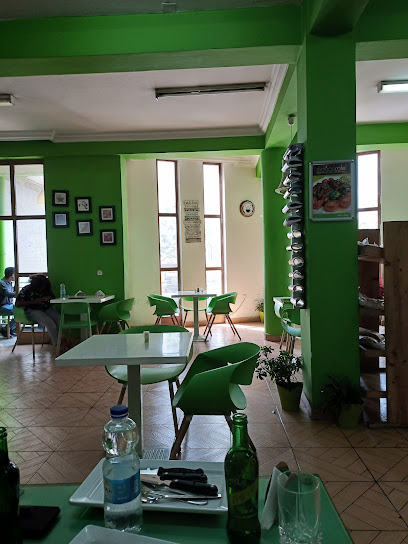
OM Indian Bistro | Bole Rwanda
Experience authentic Indian flavors at OM Indian Bistro, a culinary gem located in Bole, Rwanda offering exquisite dishes and warm hospitality.
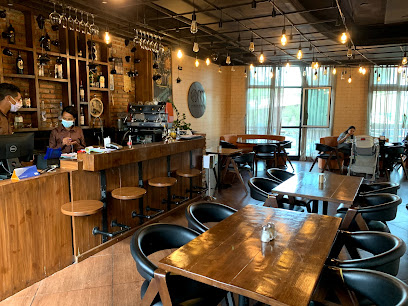
Louvre Grand Hotel & Restaurant
Experience authentic Ethiopian cuisine at Louvre Grand Hotel & Restaurant in Addis Ababa - where luxury meets local flavor.
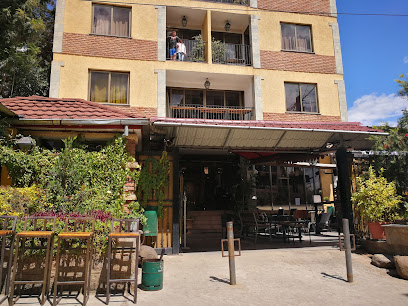
ሳቮር አዲስ ሬስቶራንት | ኡራኤል
Experience the culinary delights of Ethiopia at Savor Addis Restaurant in Bole, where traditional flavors meet modern cuisine.
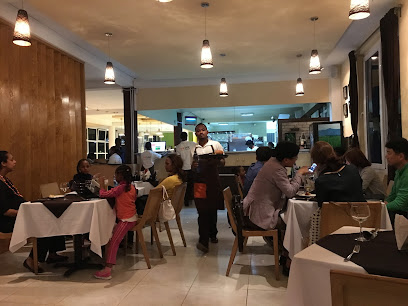
Totot Traditional food Hall | Gerji | ቶቶት | ገርጂ
Discover the heart of Ethiopian gastronomy at Totot Traditional Food Hall – where flavor meets tradition in Addis Ababa.
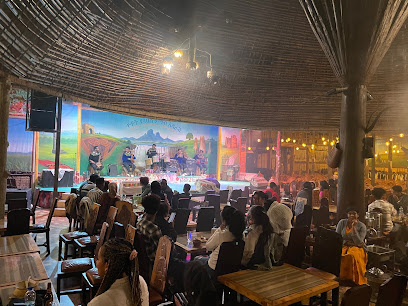
Crave Cafe & Restaurant
Experience the best of Italian cuisine at Crave Cafe & Restaurant in Addis Ababa - where every meal is a celebration of flavor.
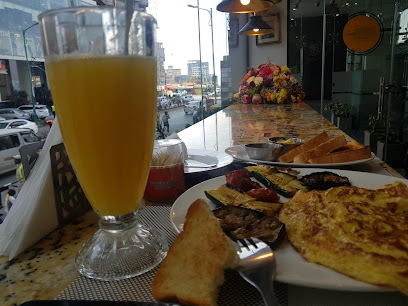
Aladdin Restaurant
Experience authentic Armenian and Middle Eastern flavors at Aladdin Restaurant in Addis Ababa's vibrant Bole district.
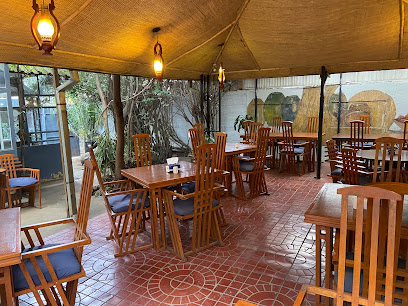
Belvedere Restaurant
Experience authentic Italian cuisine at Belvedere Restaurant in Addis Ababa - where flavors meet elegance.
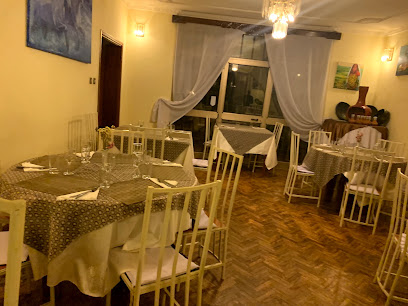
Markets, malls and hidden boutiques
Shola Market | Megenagna
Explore Shola Market in Addis Ababa for a vibrant shopping experience filled with local culture, delicious cuisine, and unique souvenirs.
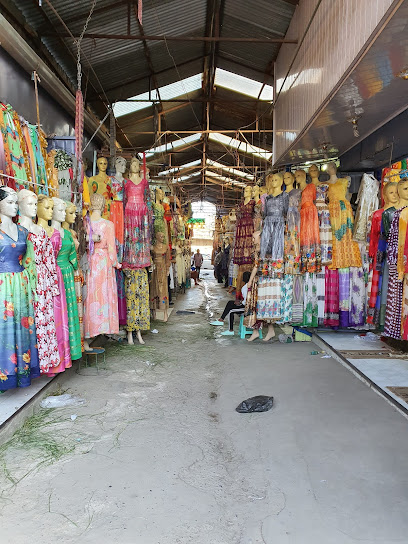
Sabahar
Explore the vibrant world of Ethiopian textiles at Sabahar, a premier fashion accessories store in Addis Ababa, offering unique handmade crafts.
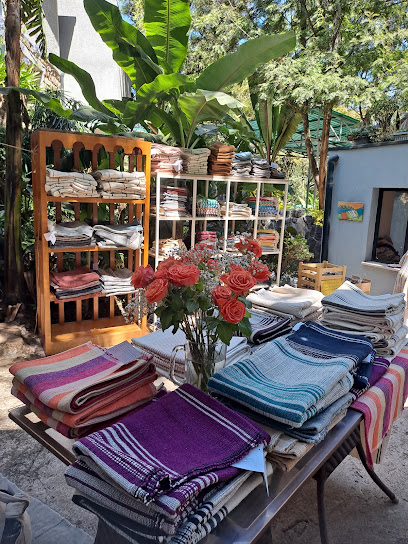
Addis Ababa Duty Free shop
Explore the Addis Ababa Duty Free Shop for exclusive deals on luxury goods, unique Ethiopian treasures, and a delightful shopping experience in the heart of the capital.
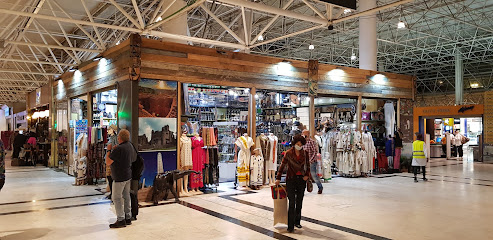
Nayo Gift and Decoration Shop
Explore the vibrant Nayo Gift and Decoration Shop in Addis Ababa for unique handcrafted gifts and a taste of Ethiopian culture.
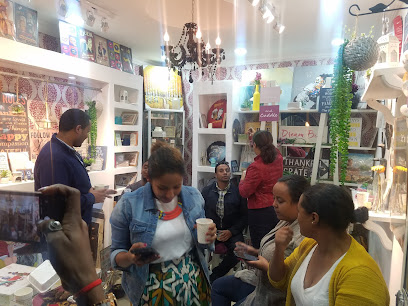
All In One Souvenir & Gift Shop
Explore the vibrant culture of Ethiopia at the All In One Souvenir & Gift Shop, where unique gifts and authentic treasures await every traveler.
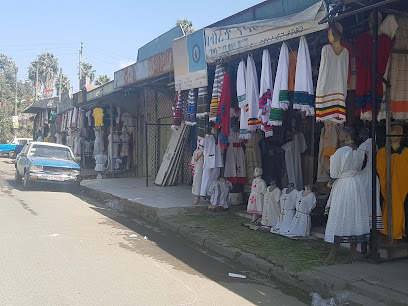
Abdi Negash Antique Store
Explore Abdi Negash Antique Store in Addis Ababa for a unique blend of art, antiques, and rare collectibles that embody Ethiopia's rich heritage.
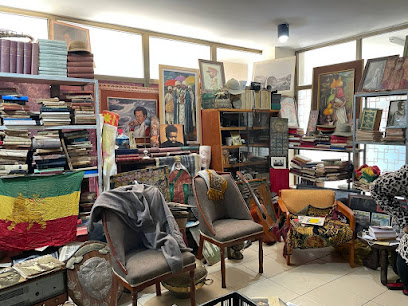
Hanubet clothing and retail store
Explore Hanubet Clothing Store in Addis Ababa for unique Ethiopian fashion pieces that blend tradition and modernity.
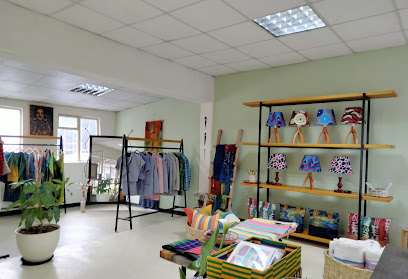
Tibeb Leather Works | Atlas
Explore the rich heritage of Ethiopian craftsmanship at Tibeb Leather Works, offering exquisite leather goods and unique souvenirs in Addis Ababa.
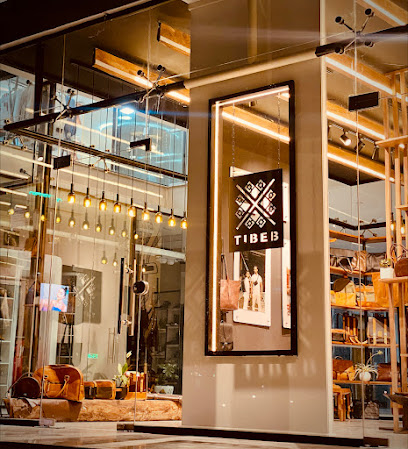
Qemer Store
Explore the vibrant fashion scene at Qemer Store in Addis Ababa, where unique accessories reflect the rich Ethiopian culture.
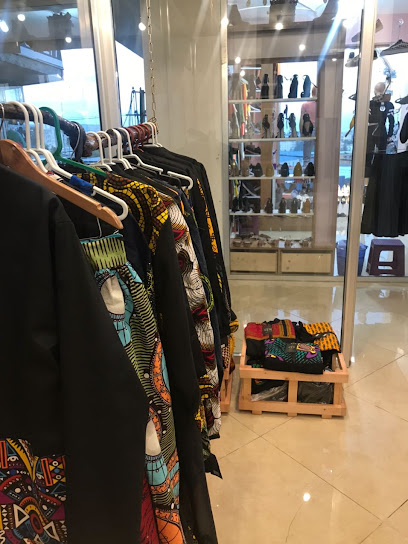
Kpop shop in Ethiopia
Dive into the heart of Kpop culture at Ethiopia's premier music store, featuring exclusive merchandise and a welcoming atmosphere for all fans.
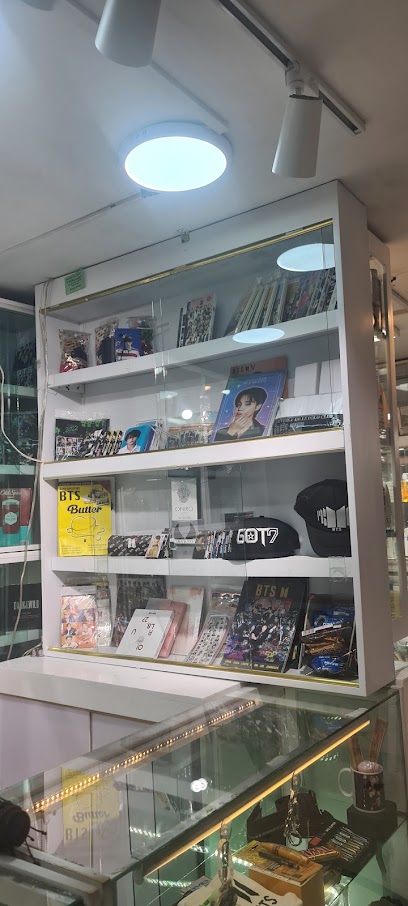
Ethiopian Cultural Shop
Discover the rich tapestry of Ethiopian culture at the Ethiopian Cultural Shop, your go-to destination for traditional clothing and cultural artifacts.

Qine Store
Explore Qine Store in Addis Ababa for unique Ethiopian souvenirs and handcrafted treasures that embody the rich culture of Ethiopia.
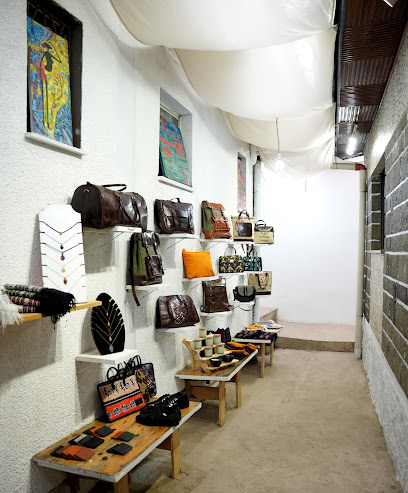
Truly Unique Shop
Explore the Truly Unique Shop in Addis Ababa for exceptional footwear that blends style and comfort, all in a vibrant shopping atmosphere.

Gebrekidan Souvenirs And Ethiopian Artifacts Gallery
Explore the vibrant culture of Ethiopia through unique souvenirs and artifacts at Gebrekidan Souvenirs and Ethiopian Artifacts Gallery in Addis Ababa.
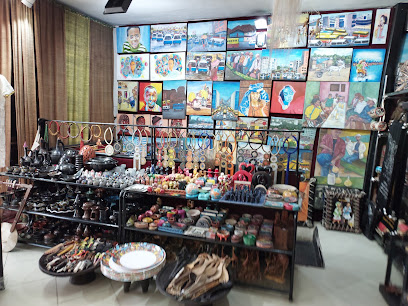
Ethiopian Cultural Clothing ጆን ፋሽን
Discover the essence of Ethiopian heritage with vibrant traditional clothing and accessories at Ethiopian Cultural Clothing in Addis Ababa.
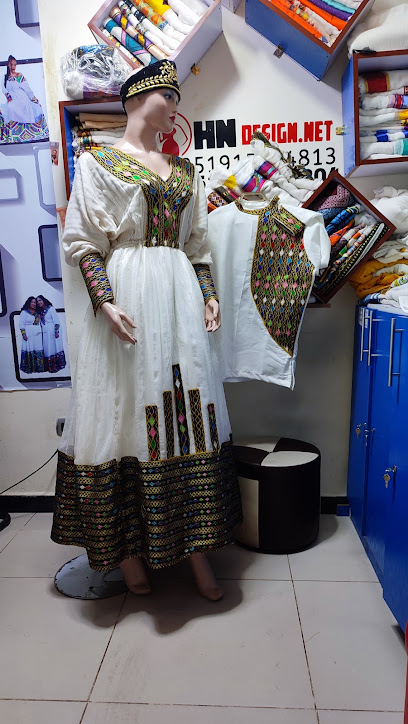
Essential bars & hidden hideouts
Union Cocktail Bar & Restaurant
Experience the vibrant nightlife and delicious grill cuisine at Union Cocktail Bar & Restaurant in the heart of Addis Ababa.
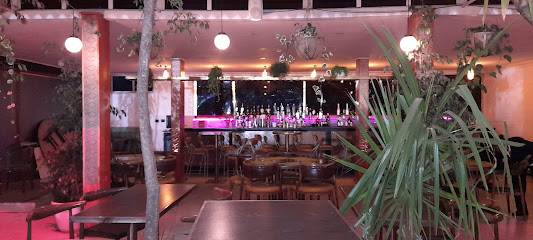
Flirt Lounge Addis
Experience the vibrant nightlife of Addis Ababa at Flirt Lounge, a stylish venue featuring live music, great drinks, and an unforgettable atmosphere.
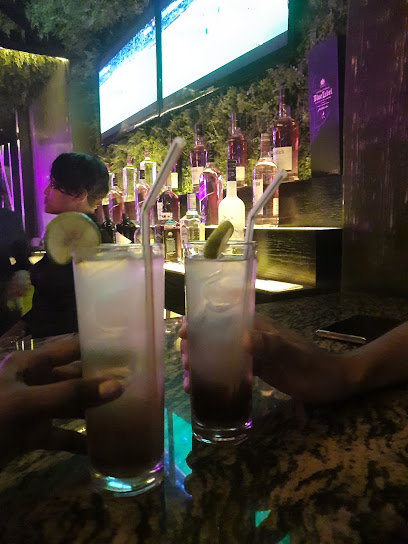
Black Rose Lounge
Discover the vibrant nightlife of Addis Ababa at Black Rose Lounge - a hub for cocktails, music, and memorable moments.
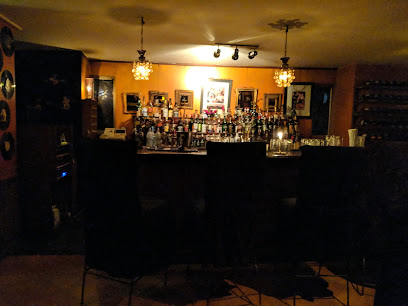
Black Pearl sports Bar
Experience the vibrant nightlife of Addis Ababa at Black Pearl Sports Bar, where sports, drinks, and great company come together.
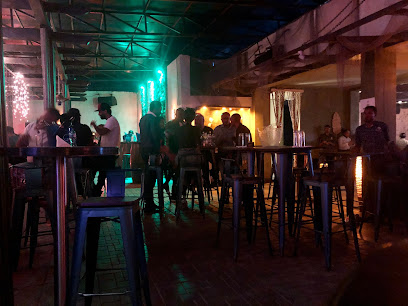
Ben' Cocktail Bar & Restuarant
Experience the best of Ethiopian flavors at Ben' Cocktail Bar & Restaurant, where culinary excellence meets a lively atmosphere in the heart of Addis Ababa.
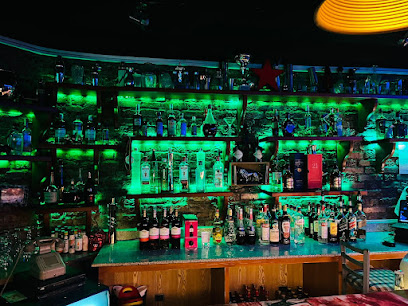
Homie Lounge
Indulge in the vibrant flavors of Ethiopian cuisine at Homie Lounge, a lively grill in Addis Ababa that offers a unique dining experience.
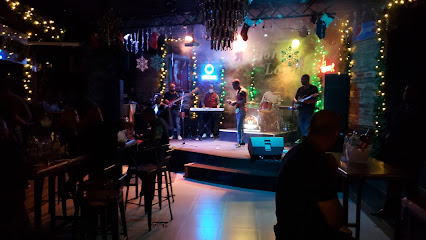
Kiss Addis
Experience the vibrant culture of Addis Ababa at Kiss Addis, a stylish lounge with a full bar and a relaxed atmosphere perfect for tourists.
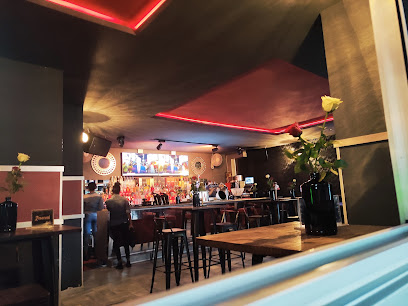
Top Bar | Kebena | ቶፕ ባር | ቀበና
Experience the vibrant nightlife of Addis Ababa at Top Bar in Kebena, where locals and travelers come together for unforgettable moments.

LE JARDIN
Experience the vibrant nightlife of Addis Ababa at Le Jardin, a cozy bar offering delightful drinks and a relaxing ambiance.
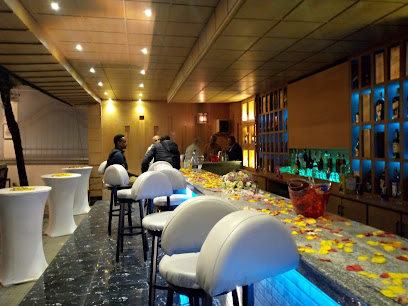
Hotspot Addis bar and restaurant
Discover the vibrant nightlife of Addis Ababa at Hotspot Addis, where exceptional cocktails and delectable cuisine come together in a lively atmosphere.
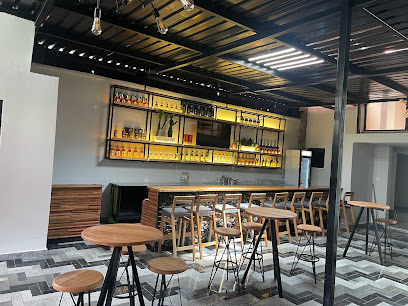
Gatsby Bar and Restaurant | Bole | ጋትቢ ባርና ሬስቶራንት | ቦሌ
Experience the vibrant flavors and lively atmosphere of Gatsby Bar and Restaurant in Bole, Addis Ababa, where dining meets entertainment.
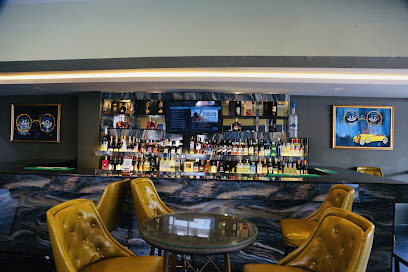
CELEBRITY BAR
Experience the vibrant nightlife of Addis Ababa at Celebrity Bar, where refreshing drinks and a lively atmosphere await every visitor.
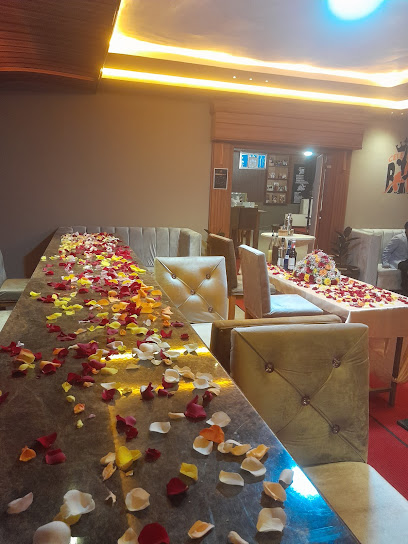
La Gazelle Piano Bar
Experience the vibrant nightlife of Addis Ababa at La Gazelle Piano Bar, where live music and great drinks create unforgettable memories.
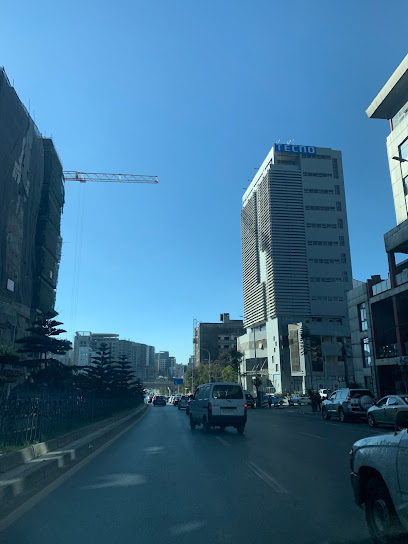
IRISH PUB at The Club
Experience the warmth of Irish hospitality at The Irish Pub at The Club in Addis Ababa, where great food and lively entertainment await you.
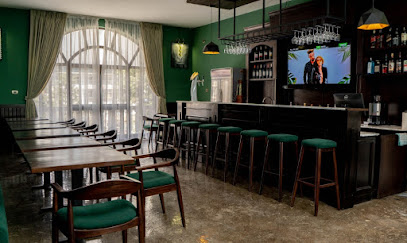
Viking Bar
Discover Viking Bar in Addis Ababa for a unique blend of vibrant nightlife, local brews, and cozy lounge vibes in an inviting atmosphere.
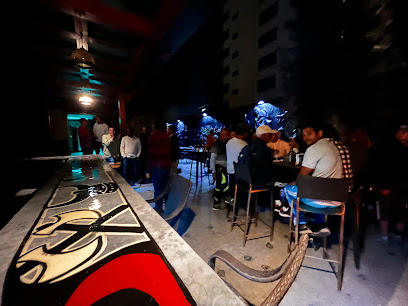
Local Phrases
-
- HelloSelam
[seh-lahm] - GoodbyeDehna hun
[deh-nah hoon] - YesEyw
[ay-ew] - NoAyeh
[ah-yeh] - Please/You're welcomeMinim sew
[mee-neem se-oh] - Thank youAmesegenalehu
[ah-meh-seh-geh-nah-leh-hoo] - Excuse me/SorryYikirta
[yi-keer-tah] - How are you?Dehna neh?
[deh-nah neh] - Fine. And you?Egziabher yistilign
[eg-zee-ah-bhehr yis-tee-leeg-n] - Do you speak English?Englizenya aymetam?
[en-glee-zen-yah eye-meh-tahm] - I don't understandSamigna alim
[sah-meen-yah ah-leem]
- HelloSelam
-
- I'd like to see the menu, pleaseMenu arifegnalehu
[meh-noo ah-ree-fehg-nah-leh-hoo] - I don't eat meatZebenya siga aytefelegn
[zeh-beh-nyah see-gah eye-teh-feh-leh-gn] - Cheers!Chin chin!
[cheen cheen] - I would like to pay, pleaseBirr arifegnalehu
[beer ah-ree-fehg-nah-leh-hoo]
- I'd like to see the menu, pleaseMenu arifegnalehu
-
- Help!Balderes
[bah-lder-ehs] - Go away!Tegeres
[teh-geh-rehs] - Call the Police!Polis yitma?
[poh-lees yit-mah] - Call a doctor!Dokter yitma?
[dohk-tehr yit-mah] - I'm lostFeres yahilign
[feh-rehs yah-hee-leeg-n] - I'm illZeybelu
[zeh-yeh-bool]
- Help!Balderes
-
- I'd like to buy...Tena yistilign...
[teh-nah yis-tee-leeg-n] - I'm just lookingGedferew
[geh-dfeh-rehw] - How much is it?Eza yaleh?
[eh-zah yah-leh] - That's too expensiveAsteyayet new
[ahs-teh-yah-yet neh-oo] - Can you lower the price?Tena yimeslegn?
[teh-nah yee-mehs-lehg-n]
- I'd like to buy...Tena yistilign...
-
- What time is it?Minew yaleh?
[mee-neh-oh yah-leh] - It's one o'clockAnde mitad
[ahn-deh mee-tahd] - Half past (10)Atsegna amet
[ah-tseh-gnah ah-met] - MorningTsedale
[tseh-dah-leh] - AfternoonZare
[zah-reh] - EveningSena
[seh-nah] - YesterdayTekil
[teh-keel] - TodayGize
[gee-zeh] - TomorrowNech
[nehch] - 1And
[ahn-d] - 2Hulet
[hoo-let] - 3Sost
[sohst] - 4Arat
[ah-raht] - 5Amist
[ah-mist] - 6Sidist
[see-dist] - 7Sebat
[seh-baht] - 8Semen
[seh-men] - 9Zetegn
[zeh-tehg-n] - 10Asra
[ahs-rah]
- What time is it?Minew yaleh?
-
- Where's a/the...?Yaleh...
[yah-leh] - What's the address?Adiresu yaleh?
[ah-dee-reh-soo yah-leh] - Can you show me (on the map)?Yimeslegn (mapeyochi)?
[yee-mehs-lehg-n mah-peh-yoh-chee] - When's the next (bus)?Ande (buseyochi) fellegn?
[ahn-deh boo-seh-yoh-chee feh-leh-gn] - A ticket (to ....)Tikiti (....) yetahilign
[tee-kee-tee yeh-tah-hee-leeg-n]
- Where's a/the...?Yaleh...
History of Addis Ababa
-
Addis Ababa, the capital city of Ethiopia, was founded in 1886 by Emperor Menelik II and his wife, Empress Taytu Betul. The Empress is credited with choosing the location for its hot springs, which she enjoyed bathing in. Initially, the settlement was a military encampment, but it quickly grew into a bustling city. The name 'Addis Ababa' means 'New Flower' in Amharic.
-
One of the most significant historical events related to Addis Ababa was the Battle of Adwa in 1896. Under the leadership of Emperor Menelik II, Ethiopian forces defeated the Italian army, preserving Ethiopia's independence during the Scramble for Africa. This victory was celebrated in Addis Ababa and solidified the city's status as the nation's capital.
-
Addis Ababa is often referred to as the 'Political Capital of Africa' because it is the headquarters of the African Union (AU). The city hosted the founding conference of the Organization of African Unity (OAU) in 1963, an event that marked the beginning of a new era of cooperation among African nations. The OAU was later transformed into the AU in 2002, and its headquarters remains in Addis Ababa.
-
During the Second Italo-Ethiopian War, Addis Ababa fell to Italian forces in 1936 and became the capital of Italian East Africa. The occupation lasted until 1941 when British and Ethiopian forces liberated the city. The period of occupation left a lasting impact on the city's architecture and infrastructure, with several buildings and roads from that era still in use today.
-
In 1974, a Marxist-Leninist military junta known as the Derg overthrew Emperor Haile Selassie and took control of Ethiopia, with Addis Ababa as its center of power. The Derg regime is infamous for the Red Terror campaign, a brutal crackdown on political opponents that resulted in thousands of deaths. The period of Derg rule lasted until 1991 when the Ethiopian People's Revolutionary Democratic Front (EPRDF) took over.
-
In recent decades, Addis Ababa has experienced significant economic growth and modernization. The city has become a hub for international organizations, businesses, and tourism. Major infrastructure projects, such as the Addis Ababa Light Rail and the expansion of Bole International Airport, have transformed the city into a bustling metropolis. The cultural landscape has also flourished, with numerous museums, theaters, and festivals celebrating Ethiopia's rich heritage.
Addis Ababa Essentials
-
Addis Ababa is served by Bole International Airport (ADD), located about 6 kilometers southeast of the city center. The airport is a major hub for Ethiopian Airlines and offers direct flights from major cities across Africa, Europe, Asia, and North America. Taxis and ride-sharing services are available from the airport to various parts of the city. Alternatively, you can arrange for airport transfers through your hotel.
-
Addis Ababa has a range of transportation options, including taxis, minibuses, and the light rail transit system. Taxis are widely available and can be hired for short trips or a full day. Minibuses (locally known as 'blue donkeys') are a common and economical way to get around, though they can be crowded. The light rail system has two lines that cover key areas of the city. Ride-sharing services like ZayRide and Ride are also popular. Renting a car is an option, but driving in Addis Ababa can be challenging due to heavy traffic and local driving habits.
-
The official currency of Ethiopia is the Ethiopian Birr (ETB). While credit cards are accepted in major hotels, restaurants, and some shops, cash is still the preferred method of payment in many places. ATMs are available throughout the city, but it is advisable to carry some cash for smaller transactions and when visiting less touristy areas. Currency exchange services are available at the airport, banks, and authorized exchange bureaus.
-
Addis Ababa is generally a safe city for tourists, but it is important to exercise standard precautions. Petty crimes like pickpocketing and bag snatching can occur in crowded areas and public transportation. High-crime areas targeting tourists include Merkato, the largest open-air market in Africa, and the Piazza neighborhood, especially at night. Avoid walking alone at night and keep your belongings secure. Be cautious of scams involving unofficial tour guides and overly friendly strangers.
-
In case of an emergency, dial 911 or 991 for immediate assistance. For medical emergencies, the Korean Hospital and St. Gabriel General Hospital are among the well-regarded facilities in the city. It is recommended to have travel insurance that covers medical emergencies. Pharmacies are widely available for minor health issues. The local police station can assist with crime-related issues, and the tourist police can be found in major tourist areas.
-
Fashion: Do dress modestly, especially when visiting religious sites. Avoid revealing clothing. Religion: Do respect local customs and traditions. Always remove your shoes when entering churches and cover your head if required. Public Transport: Do be respectful and give up your seat to elderly passengers. Don't eat or drink on public transport. Greetings: Do greet people with a handshake. A slight nod of the head is a sign of respect. Eating & Drinking: Do try local dishes like injera and accept food offerings graciously. Don't refuse hospitality, as it is considered impolite.
-
To experience Addis Ababa like a local, visit the local markets such as Shola and Merkato for fresh produce and traditional goods. Engage with locals, who are often friendly and willing to share stories about their culture and history. Don't miss visiting the National Museum of Ethiopia, where you can see the famous fossil 'Lucy'. For a unique experience, take a walk up Entoto Hill for panoramic views of the city and visit the historic Entoto Maryam Church.
Trending Landmark in Addis Ababa
-
National Museum of Ethiopia
-
Unity Park
-
Meskel Square
-
Friendship Park
-
Merkato
-
Holy Trinity Cathedral
-
Addis Ababa Stadium
-
Grand Anwar Mosque
-
Ethnological Museum
-
Sheger park
-
Red Terror Martyrs' Memorial Museum የቀይ ሽብር መታሰቢያ ሙዚየም
-
Emperor Tewodros II Square
-
Addis Ababa Museum | Meskel Square | አዲስ አበባ ሙዚየም | መስቀል አደባባይ
-
የአፍሪካ ጃዝ መንደር | African Jazz Village
-
Piassa, Degol Square
Nearby Cities to Addis Ababa
-
Things To Do in Debre Markos
-
Things To Do in Awasa
-
Things To Do in Bahir Dar
-
Things To Do in Lalibela
-
Things To Do in Dire Dawa
-
Things To Do in Arba Minch
-
Things To Do in Harar
-
Things To Do in Gondar
-
Things To Do in Jinka
-
Things To Do in Dikhil
-
Things To Do in Ali Sabieh
-
Things To Do in Mekele
-
Things To Do in Arta
-
Things To Do in Tadjoura
-
Things To Do in Djibouti City


















